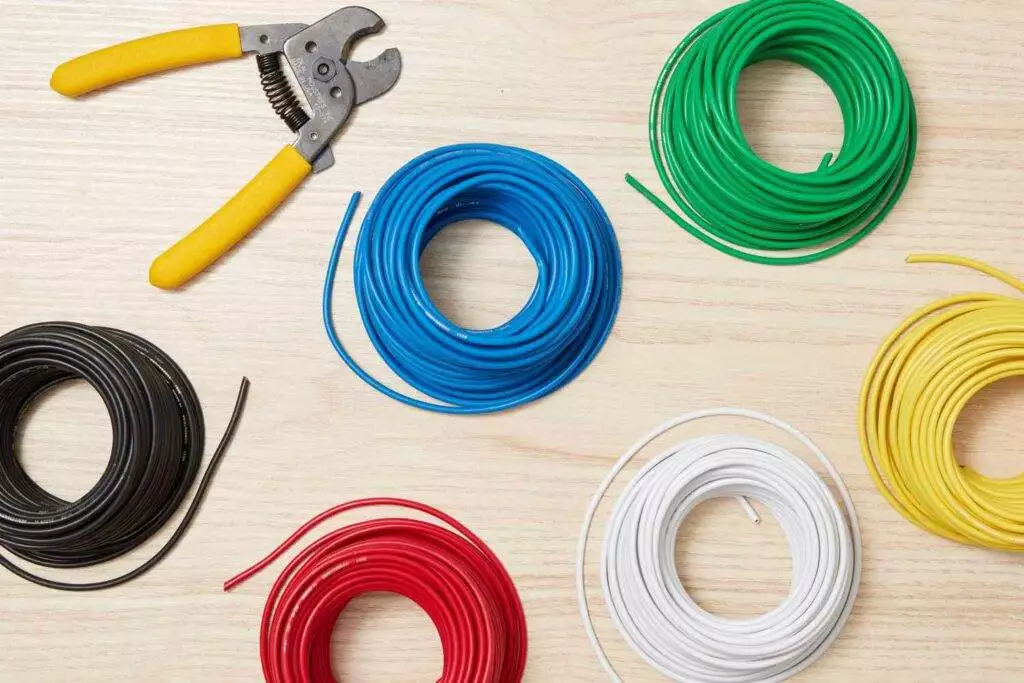Electric Wire or electrical wire/wiring refers to a conductive metal or alloy that is used to carry electric currents within an electrical system. These wires play a fundamental role in electrical installations and facilitate the transmission of electricity from one point to another. An Electric Wire is made of materials that are known for their electrical conductivity like copper and aluminum.
Electric Wire Prices
The prices of electrical wires vary depending on the material that they are made of, AWG size, and the length of wire you wish to purchase. The cheapest one starts at ₱7.40 while the most expensive wire is priced at ₱1,675.00.
| Description | MM Size | Approx AWG Size | Price per meter |
| Bare Copper | 1.6mm | 14 | ₱7.40 |
| Bare Copper | 2.0mm | 12 | ₱11.10 |
| Bare Copper | 2.6mm | 10 | ₱18.80 |
| Bare Copper | 3.2mm | 8 | ₱28.80 |
| Bare Copper | 2.0mm2 | 14 | ₱9.00 |
| Bare Copper | 3.5.0mm2 | 12 | ₱13.20 |
| Bare Copper | 5.5mm2 | 10 | ₱20.20 |
| Bare Copper | 8mm2 | 8 | ₱31.60 |
| Bare Copper | 14mm2 | 6 | ₱50.30 |
| Bare Copper | 22mm2 | 4 | ₱79.00 |
| Bare Copper | 30mm2 | 2 | ₱115.10 |
| Bare Copper | 38mm2 | 1/19 | ₱167.20 |
| Bare Copper | 50mm2 | 1/0 | ₱187.80 |
| Bare Copper | 60mm2 | 2/0 | ₱231.10 |
| Bare Copper | 80mm2 | 3/0 | ₱286.40 |
| Bare Copper | 100mm2 | 4/0 | ₱351.80 |
| Bare Copper | 125mm2 | 250MCM | ₱450.00 |
| Bare Copper | 150mm2 | 300MCM | ₱537.00 |
| Bare Copper | 175mm2 | 350MCM | ₱617.00 |
| Bare Copper | 200mm2 | 400MCM | ₱676.00 |
| Bare Copper | 250mm2 | 500MCM | ₱870.00 |
| Bare Copper | 300mm2 | 600MCM | ₱1,047.00 |
| Bare Copper | 325mm2 | 650MCM | ₱1,103.30 |
| Bare Copper | 350mm2 | 750MCM | ₱1,311.00 |
| Bare Copper | 400mm2 | 800MCM | ₱1,385.00 |
| Bare Copper | 500mm2 | 1000MCM | ₱1,675.00 |

Advantages of Electric Wire
Conductivity – Electric Wires facilitate the efficient and reliable transmission of electric current and ensure the smooth operation of electrical systems in various structures and properties
Versatility – Electric Wires are versatile and can be used in various applications, including residential wiring, industrial installations, automotive systems, and electronics.
Flexibility – Many Electric Wires are designed with stranding which provides flexibility that makes them easy to work with and bend around corners during installation.
Easy to Installation – Electric Wires are very easy to install, especially when compared to more complex electrical components as they can be routed through conduits, walls, and ceilings to connect different points within a building or system.
Cost-Effective – Electric Wires are often the most cost-effective option if you compare them to alternative methods of transmitting electrical power.
Disadvantages of Electric Wire
Risk of Electrical Shocks – Improper handling or damaged insulation can expose live wires, posing a risk of electrical shocks to individuals. Implementing proper safety precautions and insulation is essential to reduce this risk.
Fire Hazard – Many factors can lead to your Electric Wire overheating and pose a fire hazard like overloading, short circuits, or damaged wires. It is important to add protection measures, such as circuit breakers and fuses, which could prove crucial to prevent such incidents.
Environmental Impact – Some insulation materials used in Electric Wires have environmental implications so a proper disposal practice is advised to help address this concern.
Limited Transmission Distance – Electric Wires have limitations in terms of the distance over which they can efficiently transmit electrical power. A long-distance project could require additional equipment such as transformers to overcome resistance and main voltage levels.
Physical Damage – Electric Wires, especially those exposed or installed in challenging environments, can be susceptible to physical damage from factors such as impact, abrasion, or rodents.
FAQs
What are the three types of electrical wires?
The three types of wires that are used to carry electricity are live wire, neutral wire, and earth wire.
What is an Electric Wire?
Electric Wire is used for power distribution. It is the one that transmits electricity from a transformer to an outlet, appliance, device, cable, switch, or socket in your home.
What wire is used for electricity?
Electric Wires are typically made of aluminum or copper which were insulated before being covered in a thin layer of thermoplastic.
Which wire is commonly used?
The most commonly used type of wire is the copper wire due to its excellent electrical conductivity and it is also resistant to corrosion.
What is electrical wire made of?
Electrical wires are made from different kinds of metals which include steel, copper, aluminum, and silver.

